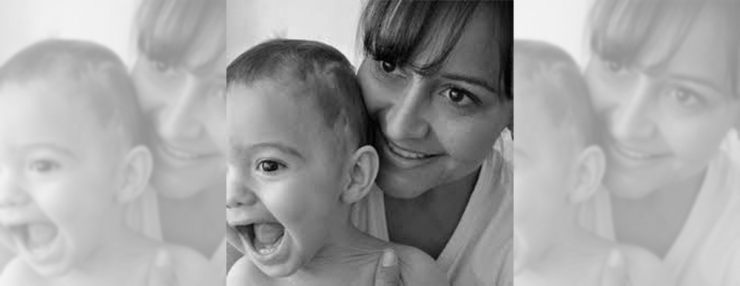
Let me tell you about Robocamp. You won’t find Arnold Schwarzenegger or Peter Weller singing Kumbaya and roasting hotdogs, but you will find a group of the hardest working tweens and teens around. They’ve all been through one of the most extreme brain surgeries I’ve ever heard of – a hemispherectomy – to stop the drug-resistant seizures devastating their bodies and minds. Now they’re fighting to get back the abilities lost after the surgery, and one of the best places to do that happens to be Robocamp.

About 45,000 U.S. kids are diagnosed with epilepsy each year, and approximately 30% don’t respond to medication designed to make life a reasonably normal thing. For these kids, the options are few, and some are extreme. Monika Jones, co-founder of the nonprofit The Brain Recovery Project, summarized the agonizing decision this way: “Our parents are faced with an excruciating decision: remove half of their child’s brain in order to stop drug-resistant seizures; or watch their child plummet into profound intellectual and physical disability and likely die from the seizures.”
Wow.
A hemispherectomy is a procedure to remove the side of the brain causing all the trouble, effectively preventing the devastating physical and neurological effects of epilepsy. It was once a much scarier, riskier operation, but has gotten more routine since it was established nearly 90 years ago. Monika’s own son Henry was born with hemimegalencephaly, a rare neurological condition that causes drug-resistant epilepsy. It took three operations to complete Henry’s hemispherectomy, the first of which took place when he was just three months old.

Kids who undergo hemispherectomies typically emerge from the surgery partially paralyzed and partially blind, and often face severe auditory and learning challenges. Rehabilitative therapy is critical for patients to regain the physical and mental ability needed to live happy, healthy lives beyond being seizure-free. But weekly therapy sessions just aren’t enough to get kids back on track. Could robots be the answer? Do I even need to answer this question?

Science tells us it takes hundreds of repetitions per day for the brain to re-learn upper body movements, and thousands for lower body functionality. The problem is, most therapy regimens consist of one or two one-hour sessions per week, covering a variety of motions, and nowhere near enough repetitions needed for real progress. That kind of intensive mobility training takes time, and a therapist with super-human stamina, and a cool distraction to keep kids from getting bored and annoyed with the whole thing. Robots!

In 2014, The Brain Recovery Project launched Robocamp, a free, two-week, intensive robotics-assisted therapy camp for children who have undergone hemispherectomy surgery due to intractable epilepsy. Each day, campers attend physical therapy sessions specifically targeted at their hand, wrist, and ankle (areas most affected by hemispherectomy surgery), as well as overall locomotion therapy, all facilitated by robotic machines.

Robots don’t get tired, frustrated, or bored performing the same motion hundreds of times. Robots are awesome. And while the machines are strengthening a child’s affected limbs, he or she plays an integrated video game to pass the time. Maybe a video game about robots? I’m not sure, but it’s a pretty great way to keep a kid’s attention.

The Robocamp day includes other activities designed for developing relationships and improving social skills, like yoga, sports, crafts, and communal meal time. Kids get the intensive therapy needed to make real, measurable progress in their recovery, plus benefits far beyond improved motor skills.

“One of the most powerful and unintended outcomes of the project to-date has been the huge social and emotional impact being with kids ‘just like me’ has had on our children,” Monika explains. “Our kids, who may be ‘rare’ in their home communities now have a community of friends who are just like them.”

Peer-acceptance makes kids more willing to try difficult things – like eating a meal – in front of each other, knowing their struggles are the same and judgement is off the table. They feel less alone, more confident, and more comfortable practicing these skills. Practice, i.e. repetition, is critical.

We were excited to hear about Audrey, a Robocamp alum whose confidence soared after her session. Audrey’s mom Stacy says, “She found success after hard work and wanted to keep trying and working on her new skills at home. She realized there are other children out there just like her – who wear AFOs, who have a weak hand, who have to take medicine, who have scars, who do not easily understand everything. She made friends. She was finally just like other people. That acceptance and inclusion was amazing.”

Despite the unfortunate lack of robots at their level, parents get a lot out of Robocamp, too. They see first-hand the impact mass therapy has on their child’s progress; they create their own community of parents who understand raising kids with neurological challenges; they find support in medical professionals deeply in-tune with brain trauma; and they watch their children blossom into the individuals they always hoped they would be.


We would like to help more families experience the incredible development seen at Robocamp each year, Chive Charities is providing a $27,500 grant to The Brain Recovery Project to give 16 kids their best summer ever! Monika was pretty excited about it, too, and wanted to send a message to Chive Nation: “Robocamp is an important project that is not only reshaping how we think about neuro-rehabilitation, but it is also helping to build a powerful community of children and families united by a common experience. Thank you to theCHIVE network for supporting our work and for believing in the potential of our children.”
This incredible grant wouldn’t be possible without the selfless donations to Chive Charities. To help more special education initiatives (and maybe more robots!), become a member of the Green Ribbon Fund and make an impact every single month.


























































































































































